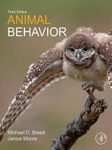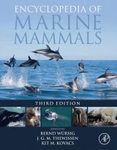About this book
Carbon Dioxide, volume 37 in the Fish Physiology series, highlights new advances in the field, with this new volume presenting interesting chapters on a variety of topics, including Historic, current-day and future CO2 environments and their dynamics in marine and freshwater ecosystems, CO2 sensing, Acid-base physiology and CO2 homeostasis: regulation and compensation, CO2 and calcification processes in fish, The physiology of behavioral impacts of high CO2, Effects of high CO2 on metabolic rates, aerobic scope and swimming performance, Internal spatial and temporal CO2 effects: feeding and alkaline tide, O2 in aquaculture: CO2 dynamics and fish health, and much more.
Contents
1. The Changing Ocean and Freshwater CO2 System / Ben I. McNeil and Katsumi Matsumoto
2. CO2 and Acid-base Sensing / Martin Tresguerres, William K. Milsom and Steve F. Perry
3. Acid-base Physiology and CO2 Homeostasis: Regulation and Compensation in Response to Elevated Environmental CO2 / Colin J. Brauner, Ryan B. Shartau, Christian Damsgaard, Andrew J. Esbaugh, Rod W. Wilson and Martin Grosell
4. CO2 and Calcification Processes in Fish / Martin Grosell
5. The Physiology of Behavioral Impacts of High CO2 / Rachael M. Heuer, Trevor J. Hamilton and G€oran E. Nilsson
6. Effects of High CO2 on Oxygen Consumption Rates, Aerobic Scope and Swimming Performance / Sjannie Lefevre
7. Internal Spatial and Temporal CO2 Dynamics: Fasting, Feeding, Drinking, and The Alkaline Tide / Chris M. Wood
8. CO2 in Aquaculture / Peter Vilhelm Skov
9. Ecological Effects of Elevated CO2 on Marine and Freshwater Fishes: From Individual to Community Effects / Philip L. Munday, Michael D. Jarrold and Ivan Nagelkerken
10. Adaptation and Evolutionary Responses to High CO2 / Philip L. Munday, Jodie L. Rummer and Hannes Baumann
Customer Reviews
Biography
Professor Philip Munday has broad interests in the ecology and evolution of reef fishes. His primary research focuses on understanding and predicting the impacts that climate change will have on populations and communities of marine fishes, both directly through changes in the physical environment and indirectly through effects on coral reef habitat. Using a range of laboratory and field-based experiments the research group he leads is investigating the effects of climate change on reef fish populations and testing their capacity for acclimation and adaptation to a rapidly changing environment.
Dr Tony Farrell is a professor in the Department of Zoology & Faculty of Land and Food Systems at the University of British Columbia and a Fellow of the Royal Society of Canada. His research provided an understanding of fish cardiorespiratory systems and has applied this knowledge to salmon migratory passage, fish stress handling and their recovery, sustainable aquaculture and aquatic toxicology. He has over 470 research publications in peer-reviewed scientific journals. He has co-edited 30 volumes of the Fish Physiology series, as well as an award-winning Encyclopedia of Fish Physiology. As part of his application of physiology to aquaculture, he has studied the sub-lethal impacts of sea lice and piscine orthoreovirus on the physiology of juvenile salmon. Dr Farrell has received multiple awards, including the Fry Medal, which is the highest honour to a scientist from the Canadian Society of Zoologists, the Beverton Medal, which is the highest honour to a scientist from the Fisheries Society of the British Isles, the Award of Excellence, which is the highest honour of the American Fisheries Society and the Murray A. Newman Awards both for Research and for Conservation from the Vancouver Marine Sciences Centre. He is a former President of the Society of Experimental Biologists and a former Editor-in-Chief for the Journal of Fish Biology. He served as a member of the Minister’s Aquaculture Advisory Committee on Finfish Aquaculture for British Columbia and was a member of the Federal Independent Expert Panel on Aquaculture Science.
Dr Colin Brauner was educated in Canada at the University of British Columbia (Ph D), followed by a Post-doctoral fellowship at Aarhus University and the University of Southern Denmark, and was a Research Associate at McMaster University. He is a Professor of Zoology, UBC and Director of the UBC Aquatics Facility. He has been a Co-Editor of the Fish Physiology series since 2006. His research investigates environmental adaptations (both mechanistic and evolutionary) in relation to gas-exchange, acid-base balance and ion regulation in fish, integrating responses from the molecular, cellular and organismal level. The ultimate goal is to understand how evolutionary pressures have shaped physiological systems among vertebrates and to determine the degree to which physiological systems can adapt/acclimate to natural and anthropogenic environmental changes. This information is crucial for basic biology and understanding the diversity of biological systems, but much of his research conducted to date can also be applied to issues of aquaculture, toxicology and water quality criteria development, as well as fisheries management. His achievements have been recognized by the Society for Experimental Biology, UK (President’s medal) and the Canadian Conference for Fisheries Research (J.C. Stevenson Memorial Lecturer) and the Vancouver Marine Sciences Centre (Murray A. Newman Award for Aquatic Research). He is a former President of the Canadian Society of Zoologists.





















![Madeira, Kanaren, Azoren: Fischführer [Madeira, Canary Islands, Azores: Fish Guide]](http://mediacdn.nhbs.com/jackets/jackets_resizer_medium/19/196500.jpg?height=150&width=105)
















